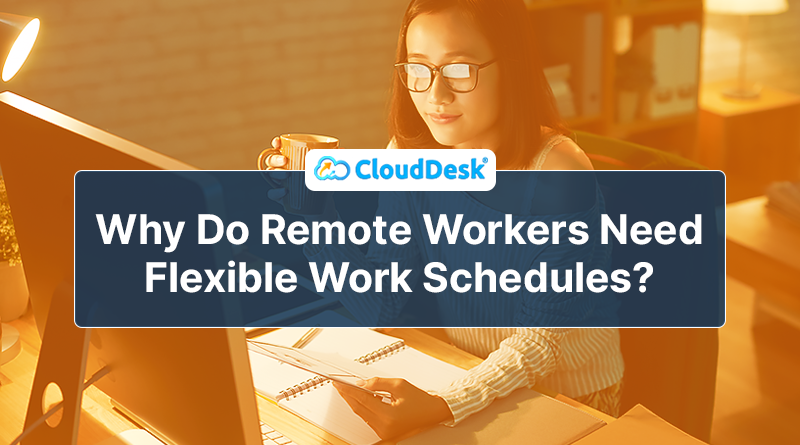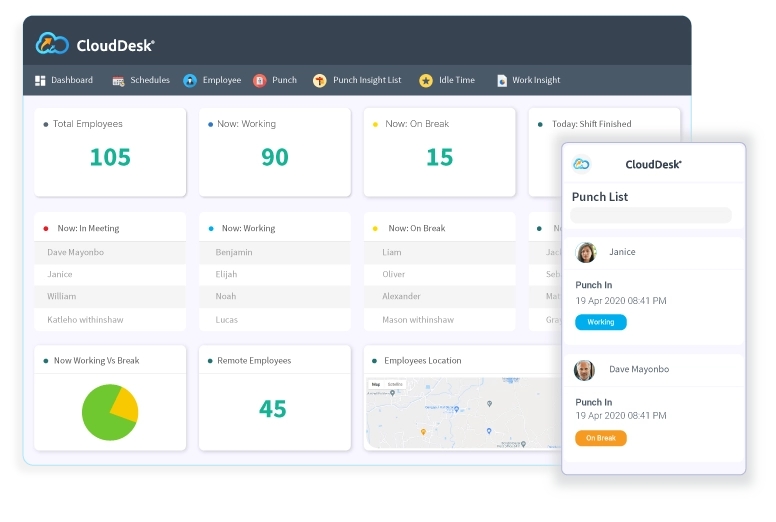Today’s workers want their work schedules to be more flexible. The good news is that flexibility might be advantageous for both businesses and people.
When working flexible hours, employees have more discretion over the hours they choose to put in. Additionally, employees can choose where and for how long they work. The latter could be a reference to distributed or remote working. Remote workers might conduct their business from their homes or another location than the office. They could vary between full- and part-time remote work schedules.
Like remote work, distributed work involves many employees working from various places. Therefore, businesses with several locations around a state, a country, or even the entire planet might benefit significantly from distributed working as a flexible alternative. A hybrid solution might be effective because many firms use several flexible options. Moreover, numerous advantages come with a flexible work schedule for employees. Not least, among other things, they can improve their sense of unity.
Therefore, you should consider establishing one or more flexible work schedule options if you have employees who need to work well together.
Flexible work schedules have the potential to increase employee productivity.
Employees are more likely to be productive if they can choose their working hours.
For instance, some employees perform better in the morning and others in the afternoon. As a result, people may work more efficiently, are happier at work, and have higher team morale.
However, flexible schedules only let workers pick the hours they work. Different types of flexible work arrangements can boost employee productivity and offer additional advantages.
Six Options for Flexible Work Schedules for the Modern Workforce
The modern workforce can work flexibly in various ways, such as staggered hours that allow employees to choose a different start and finish time than their coworkers and utilizing remote or dispersed working options.
Consider introducing six types of flexible work schedules to your firm.
1. Job-Pooling
When two persons perform the same task, they are said to be job-sharing. By way of illustration, one person might work in the morning while the other works in the afternoon, or one person might work two days per week while the other works three.
2. Job Sharing
Similar to job sharing, this. The most significant difference between the two employees is that they each had different responsibilities during their assigned shifts. The role itself is divided as a result.
3. Constrained Work Hours
Employees that work compressed hours typically work fewer than the standard five full-time days per week, such as four.
4. Hours Annually
An individual with a flexible work schedule would put in a specific number of hours each year. The employee would choose when to put in those hours.
5. Unlimited Paid Vacation Days
Another flexible work option that many companies already use is unlimited paid time off. This suggests that the number of vacation days available to employees is limitless. However, if you choose to use the unlimited paid time off option, you must also use another flexible work schedule option.
6. Retirement Early
Employees can use the reduced retirement option once they reach retirement age. People nearing the end of their careers might choose how much work they do rather than leave the company they work for.
Why Flexible Work Schedules Are Beneficial for Increasing Team Spirit
Flexible work arrangements have increased output while fostering a more cohesive workplace culture. Flexible work schedules offer many more advantages as well, all of which can enhance team spirit.
Flexible work schedules can lower employee turnover.
Flexibility in the workplace will help employees improve their work and personal lives. People are consequently made joyful. This enhances not only team morale but also productivity. Additionally, it suggests that turnover and employee retention can be kept to a minimum.
Teams are only sometimes required to alter their collaboration methods when there is limited personnel turnover.
Team members may experience less stress.
Because they do not constantly have to worry about being on time for work, employees with flexible schedules could experience less anxiety.
They won’t have to struggle through rush-hour traffic or deal with family problems that prevent them from leaving the house.
They might be happier, more committed to their work, and more cooperative as a result.
Be aware; nevertheless, that employee burnout can occasionally result from remote work. So, employ strategies to stop it from happening.
Employee Empowerment Is Possible
Compared to individuals who work the same hours weekly, employees with flexible schedules may feel more in control.
Employees who feel more in charge of their workdays and environments are more likely to be productive and to feel more a part of the team. Controlling break times also gives workers a sense of empowerment.
The Ability of Employees to Manage Family Commitments
An employee’s requirement for child care may decrease thanks to a flexible schedule, which will also save money. Additionally, an employee would have more influence over other family commitments, such as taking time off work to watch a child’s school play or staying home when they are ill.
Commitments can improve work/life balance and increase focus at the office. In addition, of course, this makes it possible for a worker to be a loyal team member and to support the overall team spirit.
Sometimes workers may put their own needs last.
Employees may be happier overall, especially at work, if they have the option to put their demands above those of the company.
Prioritizing is not limited to childcare and other family obligations. For instance, workers with flexible work hours can maximize their social activities and exercise regimens.
Employees who can put their personal needs first are happier and more committed at work, which makes them better team players.
Workers Are Free to Pursue Their Passions Outside of Work
Flexible schedules allow workers to pursue their hobbies more outside the office, making them happier and more effective inside.
If there is no option for flexible scheduling and an employee’s passion cannot be accommodated within a nine to five timetable, such as completing a creative English course, they may hate their job.
Contrarily, flexible schedules enable workers to follow their interests, which makes them happier, more motivated, and more prepared to support a positive workplace culture.
You can recruit and keep top talent
The introduction noted that the modern worker favors more flexible options. Additionally, employees want more opportunities for engagement, advancement, and meaning.
By ensuring that your company provides these opportunities, you can attract and retain top talent. Additionally, when you have an engaged workforce, team spirit among employees is likely to grow.
In today’s workforce, it is crucial to recognize the value of flexibility, inclusiveness, purpose, and progress. In fact, before applying for jobs, many potential employees now purposefully examine the company’s stand on these issues.
To sum it up
More than just giving employees more discretion over their working hours might be included in the definition of flexibility.
Besides flexible work arrangements like job sharing, job splitting, compressed working, annualized hours, unlimited paid time off, and reduced retirement, remote and dispersed working options can also be integrated.
It would be best if you took the time to explore the several flexible work schedule options that can be advantageous for your company. Think about how flexible scheduling could benefit both your company and your staff.
One benefit of flexible work arrangements that benefits both employees and businesses is increased team spirit.
In conclusion, working alongside coworkers can increase employee happiness, attention, and inspiration because:
-
Flexible work arrangements ensure that teams don’t frequently change how they collaborate and help to lower employee turnover.
-
As a result of not having to stress about things like getting to work on time, employees may experience less anxiety.
-
If workers have more control over their schedules, they could feel more empowered.
-
Employees can have more control regarding their responsibilities to their families, such as going to their kids’ school plays.
-
The ability to prioritize personal needs enables employees to balance work and life, making them happier and more effective at work.
-
Employees might engage in extracurricular activities, including playing sports or taking classes.
Top talent can be retained more readily.
When all of this is considered, flexible work schedules allow people to be more content, motivated, and happy at work. Because of this, they can improve their performance while also cheering up their coworkers.
Finally, flexible work arrangements can significantly improve group morale.
Bonus Advice: Set a timetable for how many hours you’ll work and follow it.
For a flexible schedule to operate, it is essential to estimate the number of hours your employees put in accurately. Estimating the hours your workers work may seem more challenging the more prominent your company gets, especially if they have flexible schedules. However, you can accurately and thoroughly track your employees’ time using technology like CloudDesk. Despite working remotely, your employee is always connected owing to technology.




